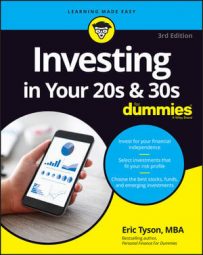One of the biggest mistakes people make is rushing into a financial decision without considering what’s really important to them. Because many people get caught up in the responsibilities of their daily lives, they often don’t have time for reflection. Take that time, because people who identify their goals and then work toward them, which often requires changing some habits, accomplish their goals.
"Shorter-term" financial goals — such as establishing an emergency reserve, making major purchases, owning a home, and starting a small business — and how to work toward them are discussed here. Accomplishing such goals almost always requires saving money.
Accumulating a rainy-day fund
The future is unpredictable. Take the uncertainty simply surrounding your job: You could lose your job, or you might want to leave it. Because you don’t know what the future holds, preparing for the unexpected is financially wise. Enter the emergency or rainy-day fund.The size of your emergency fund depends on your personal situation. Begin by considering how much you spend in a typical month. Here are some benchmarks for how many months’ worth of living expenses you should have:
- Three months’ living expenses: When you’re starting out, this minimalist approach makes sense if your only current source of emergency funds is a high-interest credit card. Longer-term, you could make do with three months’ living expenses if you have other accounts, such as a 401(k), or family members and close friends whom you can tap for a short-term loan.
- Six months’ living expenses: If you don’t have other places to turn for a loan, or if you have some instability in your employment situation or source of income, you need more of a cushion.
- Twelve months’ living expenses: Consider this large a stash if your income fluctuates greatly or if your occupation involves a high risk of job loss, finding another job could take you a long time, or you don’t have other places to turn for a loan.
Saving for large purchases
Most people want things — such as furniture, a vacation, or a car — that they don’t have cash on hand to pay for. Save for your larger consumer purchases to avoid paying for them over time with high-interest consumer credit. Don’t take out credit card or auto loans — otherwise known as consumer credit — to make large purchases. (Don’t be duped by a seemingly low interest rate on, for example, a car loan. You could get the car at a lower price if you don’t opt for such a loan.)Paying for high-interest consumer debt can undermine your ability to save toward your goals and your ability to make major purchases in the future. Don’t deny yourself gratification; just figure out how to delay it. When contemplating the purchase of a consumer item on credit, add up the total interest you’d end up paying on your debt, and call it the price of instant gratification.
Investing for a small business or home
In your early years of saving and investing, deciding whether to save money to buy a home or to put money into a retirement account presents a dilemma. In the long run, owning your own home is usually a wise financial move. On the other hand, saving sooner for retirement makes achieving your goals easier and reduces your income tax bill.Presuming that both goals are important to you, you can save toward both goals: buying a home and retiring. If you’re eager to own a home, you can throw all your savings toward achieving that goal and temporarily put your retirement savings on hold.
You can make penalty-free withdrawals of up to $10,000 from Individual Retirement Accounts (IRAs) toward a first-time home purchase. You might also be able to have the best of both worlds if you work for an employer that allows borrowing against retirement account balances. You can save money in the retirement account and then borrow against it for the down payment on a home. Consider this option with great care, though, because retirement account loans generally must be repaid within a few years or when you quit or lose your job (ask your employer for the details).
When saving money for starting or buying a business, most people encounter the same dilemma they face when deciding to save to buy a house: If you fund your retirement accounts to the exclusion of earmarking money for your small-business dreams, your entrepreneurial aspirations may never become reality. Generally, I advocate hedging your bets by saving money in your tax-sheltered retirement accounts as well as toward your business venture. An investment in your own small business can produce great rewards, so you may feel comfortable focusing your savings on your own business.Saving for kids’ educational costs
Do you have little ones or plan to have them in your future? You probably know that rearing a child (or two) costs really big bucks. But the biggest expense awaits when they reach young adulthood and want to go to college, so your instincts may be to try to save money to accomplish and afford that goal.The college financial-aid system effectively penalizes you for saving money outside tax-sheltered retirement accounts and penalizes you even more if the money is invested in the child’s name. Wanting to provide for your children’s future is perfectly natural but doing so before you’ve saved adequately toward your own goals can be a major financial mistake.
This concept may sound selfish, but the reality is that you need to take care of your future first. Take advantage of saving through your tax-sheltered retirement accounts before you set aside money in custodial savings accounts for your kids.
